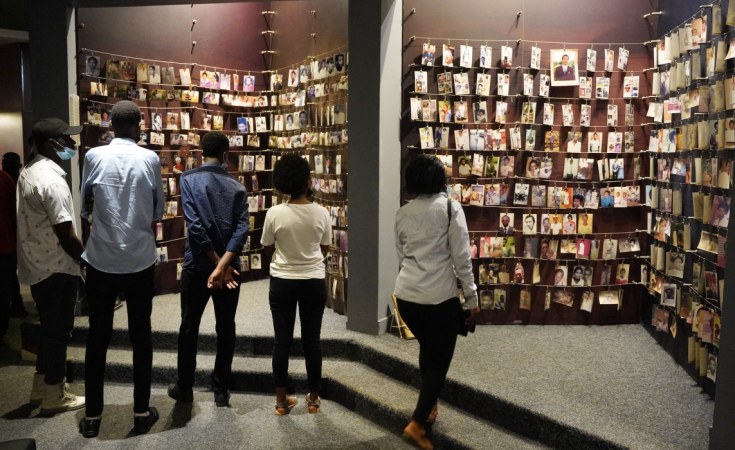Eugene Rwamucyo, a former doctor who practiced in France until 2010, went on trial in Paris on Tuesday accused of participating in Rwanda's 1994 genocide. His is the eighth such case to be tried in France, which has refused to extradite suspects over concerns they would be denied a fair hearing.
Rwamucyo, 65, stands accused of spreading propaganda against Rwanda's Tutsi population, who made up most of the 800,000 estimated victims of the 1994 massacres.
He is also alleged to have helped destroy evidence of the killings, including by burying victims' bodies or even finishing off those wounded.
He faces charges of genocide and crimes against humanity, as well as complicity in and conspiring to prepare those crimes.
If convicted, he could face life in prison.
Denial
Rwamucyo, who moved to France in 1999, denies the charges.
His lawyer, Philippe Meilhac, argues the accusations are politically motivated.
While his client acknowledges organising the burial of bodies in mass graves, he was seeking to avoid the "health crisis" that could have resulted if they were left in the open, Meilhac said.
But lawyers representing the plaintiffs in the case - an alliance of genocide victims and rights watchdogs - allege Rwamucyo was a known extremist.
They accuse him of holding public meetings while he was teaching at the university of Butare in southern Rwanda during the genocide to relay hate speech from the Hutu authorities overseeing the killings and incite violence against Tutsis.
In one instance in May 1994, he is alleged to have given an inflammatory speech alongside Jean Kambanda, the prime minister at the time.
Seventeen-year saga
The trial opened at the Paris assize court on Tuesday morning and is expected to continue until the end of October.
It comes 17 years after representatives of genocide victims first filed a complaint against Rwamucyo in France in April 2007.
Rwanda issued an international warrant for his arrest four months later, but Rwamucyo remained at liberty in northern France, where he worked at a hospital.
French police detained him in May 2010, as he attended the funeral of one of the masterminds of the Rwandan genocide, Jean-Bosco Barayagwiza, at a cemetery near Paris.
A French court subsequently denied Kigali's request that he be returned to Rwanda to face trial.
He was freed and moved to Belgium, but judges in France continued to investigate.
After Rwamucyo's appeals to have the case dismissed were rejected, a criminal trial was finally ordered at the beginning of 2023.
Universal jurisdiction
Some 60 witnesses have been called to testify at the trial, which is due to conclude on 29 October.
It is one of several dozen pursued by the Collective of Civil Parties for Rwanda (CPCR), an association founded in 2001 to seek the prosecution of genocide suspects in France.
The principal of universal jurisdiction allows the country's courts to try cases of crimes against humanity even if they were committed outside its borders.
Many people accused of participating in the Rwandan genocide later fled to France, a long-time ally of the Hutu regime.
Rwanda marks 30 years since France's contested mission to stem 1994 genocide
Seven have been tried so far, most recently Sosthene Munyemana, another former doctor who was sentenced to 24 years in prison in December 2023 for his involvement.
The CPCR has also filed a complaint against a third doctor, Charles Twagira, who it tracked down working at a hospital in Rouen. He was indicted in 2014 and remains under investigation, though not in custody.
Meanwhile former military policeman Philippe Hategekimana, who was convicted of genocide last year and sentenced to life in prison, is due to begin appealing that verdict in mid-November.
While Rwanda has welcomed efforts to hold "génocidaires" accountable, President Paul Kagame has objected to France's repeated refusals to extradite suspects, as well as the slow progress of cases through its courts.
Thirty years after genocide, Rwanda's relations with France are slowly mending


